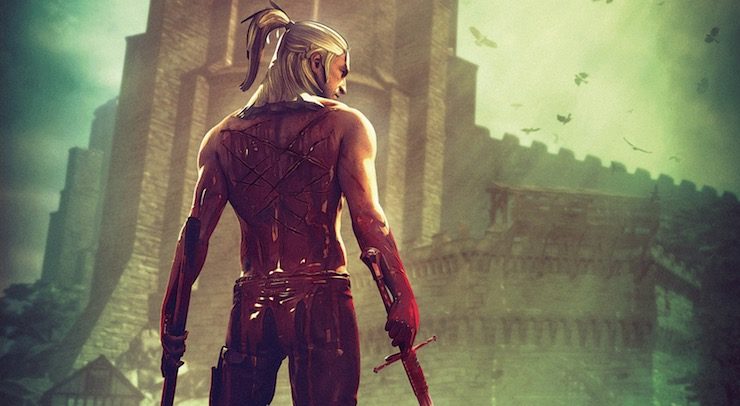Slavic SFF is a fascinating corner of our beloved genre. Often times it gets unfairly overlooked, or lumped in with Western European SFF and dismissed as just another faux medieval fantasy vaguely inspired by (Western) historical events.
But the reality is a completely different matter.
Eastern European genre fiction doesn’t just differ substantially from that of American or Western European pickings on a cultural level. Its simultaneously ancient and painfully recent history regarding the USSR, socialism, the Russian revolution, space pioneering—as well as Slavic folklore that builds more upon myth and pagan legend than the Christian side of scale—provides a ripe playing field to explore unique themes and cultural concerns. The juxtaposition of harsh suppression and censorship with liberal freedom of expression in science fiction and fantasy also provides an interesting case study for the power of the pen.
The Turkic, Chechen, and Mongolian influences seen in foods, architecture, and language stir up a melting pot that builds up Slavic history today and equips Eastern European authors with the tools to build a distinctive world.
So. There’s some truly fantastic novels out there that cement Slavic SFF’s contribution to cultural diversity. Here are the five you should have on your shelf right now.
Metro: 2033 — Dmitry Glukhovsky
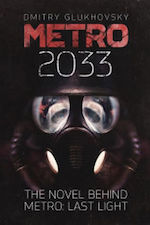 Thanks to the video game adaptation, chances are you’ve heard about this one already. The novel sees our hero Artyom in a post-apocalyptic Russia where survivors camp out along the skeleton of the real life Moscow Metro where factions and bandits fight for control over the linerails. But the presence of mysterious creatures known as Dark Ones kicks chaos into motion.
Thanks to the video game adaptation, chances are you’ve heard about this one already. The novel sees our hero Artyom in a post-apocalyptic Russia where survivors camp out along the skeleton of the real life Moscow Metro where factions and bandits fight for control over the linerails. But the presence of mysterious creatures known as Dark Ones kicks chaos into motion.
The easy blend of magic realism and social SF, mashed together with the threat of communism and fascism, set this post-apocalyptic adventure from its Western counterparts to provide a thrilling, grimdark adventure to cut your teeth on.
Blood of Elves — Andrzej Sapkowski
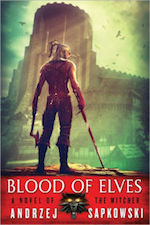 It’s impossible not to include this one. Another title that’s made its way to the video game format: Blood of Elves is the first novel in the Polish Witcher Saga. There are two previous short story collections worth checking out, but this is the best entry point.
It’s impossible not to include this one. Another title that’s made its way to the video game format: Blood of Elves is the first novel in the Polish Witcher Saga. There are two previous short story collections worth checking out, but this is the best entry point.
In the centre of a vicious civil war is Ciri, a young girl with unusual magic powers that leave the most skilled of sorceresses baffled. With monarchs hungering for her blood, it’s up to the gruff-faced Geralt of Rivia to protect her and turn the tide of a nation. The journey is packed with multiple fantasy races and how they came to be, rich world-building, deep-rooted tension and velvety character drama invoking an undeniable sense of verisimilitude. Taking inspiration from Polish folklore and history, Blood of Elves is a gripping gateway to a velvet-rich world of strange magic, archaic prophesies and best of all: wickedly cool monsters.
The Stranger: The Labyrinths of Echo, Part One — Max Frei/Svetlana Martynchik
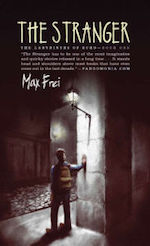 Sliding away from the epic and into the weird and urban, Ukrainian-born author Max Frei’s The Stranger gives us … well, Max Frei: a loner who sleeps all day but is deprived of the ability to do the same at night. In his dreams he slips into a parallel universe where he’s an agent in charge of cases that start weird and only get weirder from there.
Sliding away from the epic and into the weird and urban, Ukrainian-born author Max Frei’s The Stranger gives us … well, Max Frei: a loner who sleeps all day but is deprived of the ability to do the same at night. In his dreams he slips into a parallel universe where he’s an agent in charge of cases that start weird and only get weirder from there.
Snarky, unapologetically voice-driven and accompanied by a very bleak and very Slavic twisted sense of humour, The Stranger is one of those novels that you’ve read half a dozen times before but do so again because it’s just that good. If you’re a fan of The Dresden Files then this one is for you. The teenagey-ness of our protagonist and his voice could be off-putting to some, but its well worth the effort for those with a rebellious streak.
Night Watch — Sergei Lukyanenko
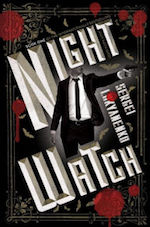 If you’re looking for something unapologetically Eastern European, then you’re sure as hell going to find it here. The first in this epic saga captures the conflict between the two variations of the supernaturally-gifted Others, the Dark (agents of the night) and the Light (agents of the day). We follow Night Watcher Anton Gorodetsky as peace comes crashing down and the inevitable end o’ the world looms overhead.
If you’re looking for something unapologetically Eastern European, then you’re sure as hell going to find it here. The first in this epic saga captures the conflict between the two variations of the supernaturally-gifted Others, the Dark (agents of the night) and the Light (agents of the day). We follow Night Watcher Anton Gorodetsky as peace comes crashing down and the inevitable end o’ the world looms overhead.
Putting aside the silk-smooth action and thriller pace, there’s an unapologetic Russian flavour to Lukyanenko’s world that slides off the pages—the distinct post-Soviet vibe, the clash of Western capitalism against socialism, morally grey philosophy, unrelenting urban nihilism, and of course: vodka. Lots and lots and lots of vodka. Night Watch wears its Slavic badge loud and proud and doesn’t let you forget it for a moment. It’s the popular opposite of a Western European urban fantasy and it’s absolutely glorious. If you can stomach its dense offerings, pick it up post-haste.
S.N.U.F.F. — Victor Pelevin
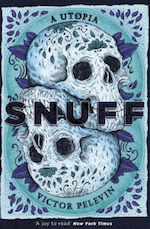 Here’s a little weird, transgressive punter of a novel to wrap up our list. Pelevin’s S.N.U.F.F. sweeps us into a flying city called Byzantium (or Big Byz), full of Russian-speaking inhabitants, whereas far below lies the collapsed world of Urkaina—slang for criminal in Russian. We follow Damilola Karpov as he fights his battles equipped with a video camera and his remote-controlled drone to essentially demonize the oppressed Urkaina below.
Here’s a little weird, transgressive punter of a novel to wrap up our list. Pelevin’s S.N.U.F.F. sweeps us into a flying city called Byzantium (or Big Byz), full of Russian-speaking inhabitants, whereas far below lies the collapsed world of Urkaina—slang for criminal in Russian. We follow Damilola Karpov as he fights his battles equipped with a video camera and his remote-controlled drone to essentially demonize the oppressed Urkaina below.
It’s an impenitent political satire of modern-day Russia and its very complex relationship with Ukraine (the name of this technologically inferior and “barbaric” world under Big Byz is not accidental), and we’re treated to a very dark and pull-no-punches discourse that makes A Clockwork Orange look like child’s play. Religion, media corruption, immigration, and Western brainwashing are all unpacked with nuanced political wordplay and neologisms that press us deeper into this savage little totalitarian nightmare. It’s definitely the quirkiest title on this list but the mental workout is well worth the effort.
Born in 1995 with a twisted sense of humour and taste for craft beer, Jeremy Szal’s work has appeared in Nature, Nature: Physics, Abyss & Apex, Lightspeed, Strange Horizons, Tor.com, The Drabblecast and others. His work has been adapted into audio and translated into Arabic, Polish and Chinese. He is the fiction editor for Hugo-winning podcast StarShipSofa where he’s worked with authors such as George R. R. Martin, William Gibson, Kim Stanley Robinson, Joe R. Lansdale and others. He’s also got a rather useless BA in Film Studies and Creative Writing. He’s completed multiple novels and is on the hunt for literary representation. He carves out a living in Sydney, Australia. Find him on Twitter at @jeremyszal.










